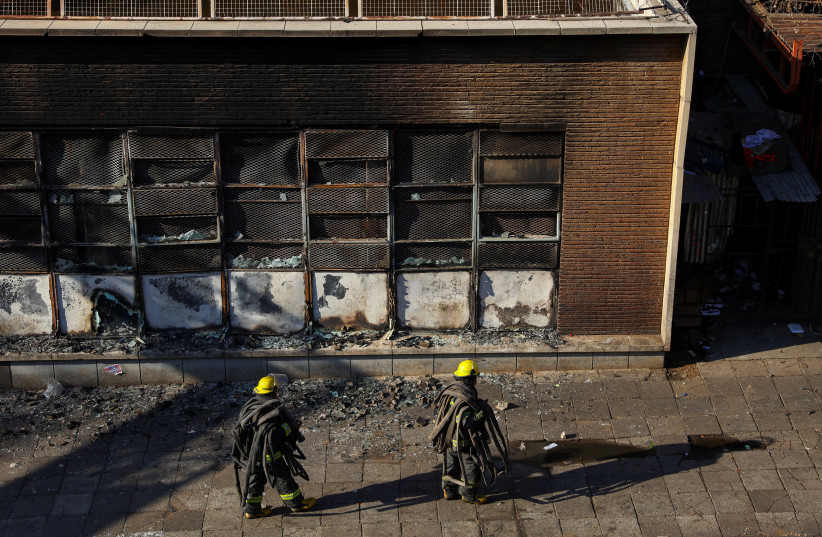More than 70 people were killed overnight when fire raged through a five-story Johannesburg apartment block, one of the worst such disasters in a city where poverty, household fires and homelessness are widespread.
Gutted, blackened by soot and still smoldering on Thursday as emergency services gathered around it and bodies lay covered in blankets on a nearby street, the building stood in a rundown area.
It was owned by municipal authorities who, 12 hours after the blaze broke out, were still unable to provide a clear picture of who had lived there. One official said some rooms may have been rented out by criminal gangs.
President Cyril Ramaphosa said he hoped an ongoing investigation into the causes of the fire would help prevent a similar tragedy from occurring in the future.
Leo, a 25-year-old who survived the blaze, had been living on the building's second floor. He escaped along with his mother via the stairs.

"People were just running away. It was dark and there was smoke. You couldn't see anything," he said.
At least one person jumped to their death, said Thando le Nkosi Manzini, a student who saw the fire from the street. "I saw a guy jumping from the fourth floor," he told Reuters.
The municipal government said at least 73 people had died and 43 been injured in the blaze.
Johannesburg officials initially suggested the building had been occupied by squatters.
City Mayor Kabelo Gwamanda told reporters the municipality had leased it to a charity for displaced women but that it had "ended up serving a different purpose," without giving further details.
Lebogang Isaac Maile, the head of the Human Settlements department for Gauteng province, which includes Johannesburg, said some of those burned to deathmay have been renting from criminal gangs illegally collecting rent.
"There are cartels who prey on who are vulnerable people. Because some of these buildings, if not most of them, are actually in the hands of those cartels who collect rental from the people," he told reporters.
Apartheid heritage building
A sign at the entrance to the block identified it as a heritage building from South Africa's apartheid past, where Black South Africans came to collect their "dompass" - documents that would enable them to work in white-owned areas of the city.
Johannesburg remains one of the world's most unequal cities with widespread poverty, joblessness and a housing crisis. It has about 15,000 homeless people, according to the Gauteng government.
Household fires are common in Johannesburg, especially in poor areas. One of the poorest townships, Alexandra, has seen hundreds of homes razed in several fires over the past five years.
The city suffers from chronic power shortages during which many resort to candles for light and wood fires for heat.
Authorities said the cause of the fire was still under investigation.
Maile said it "demonstrates a chronic problem of housing in our province, as we've previously said that there's at least 1.2 million people who need housing."
